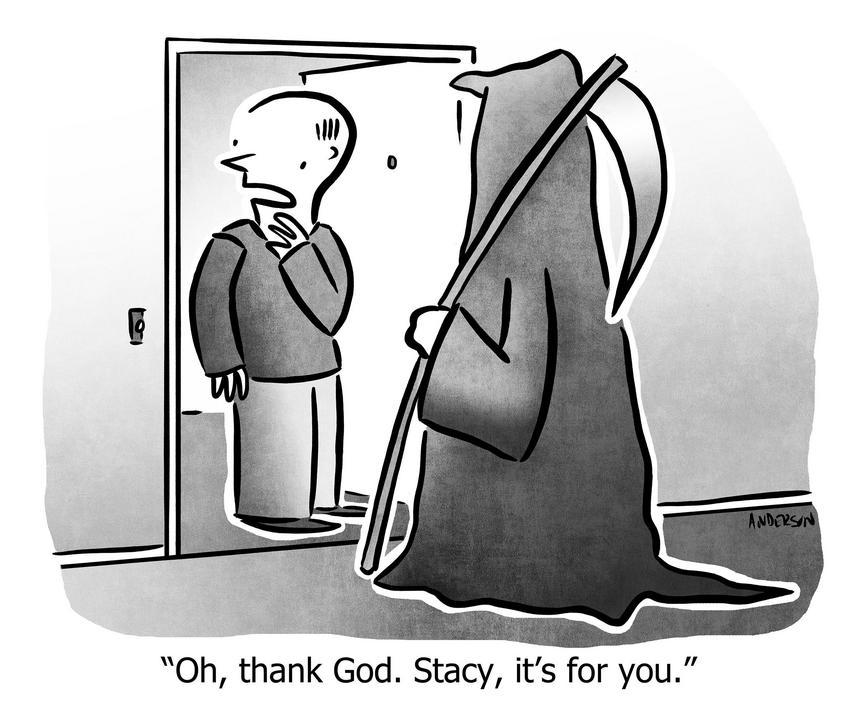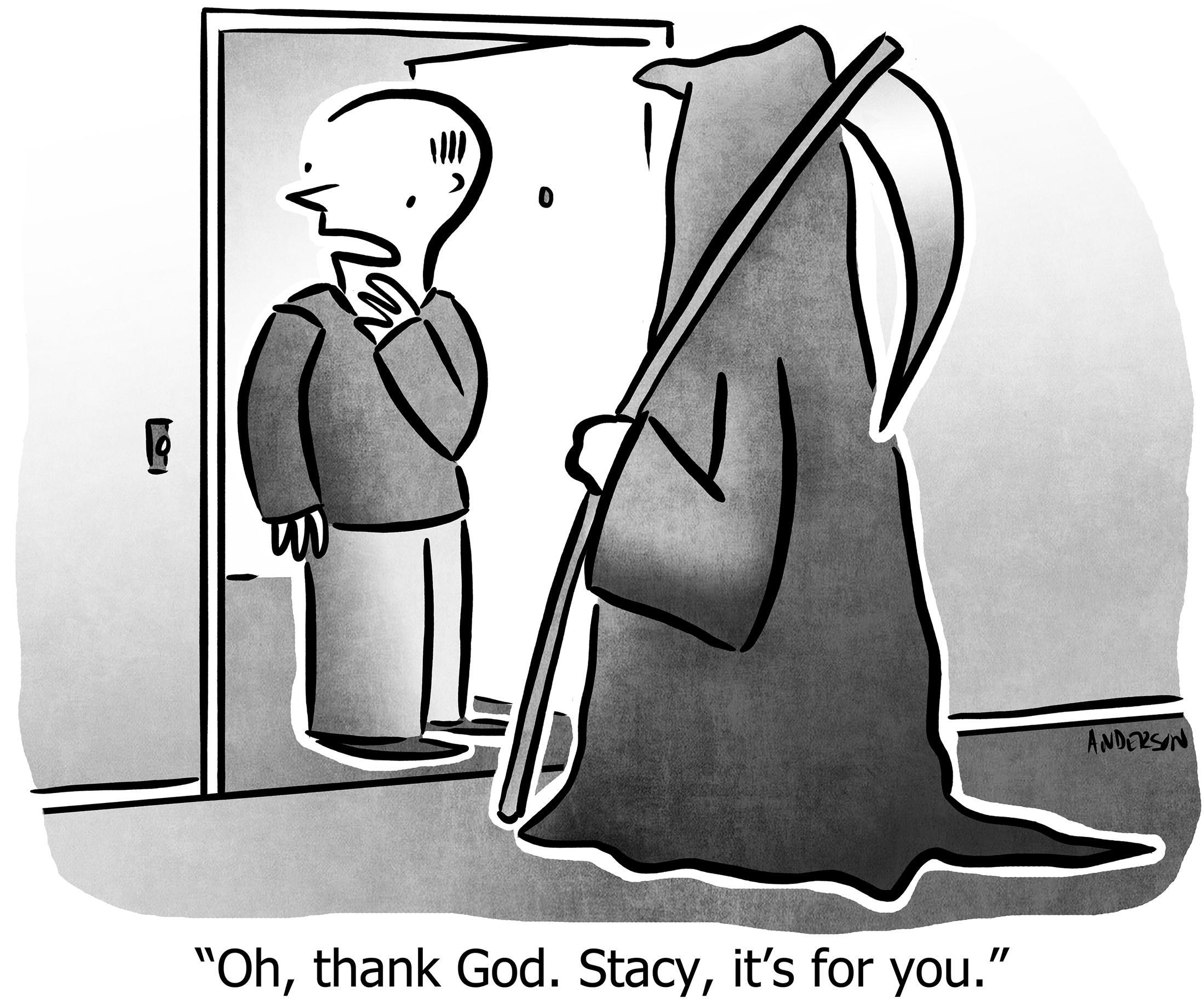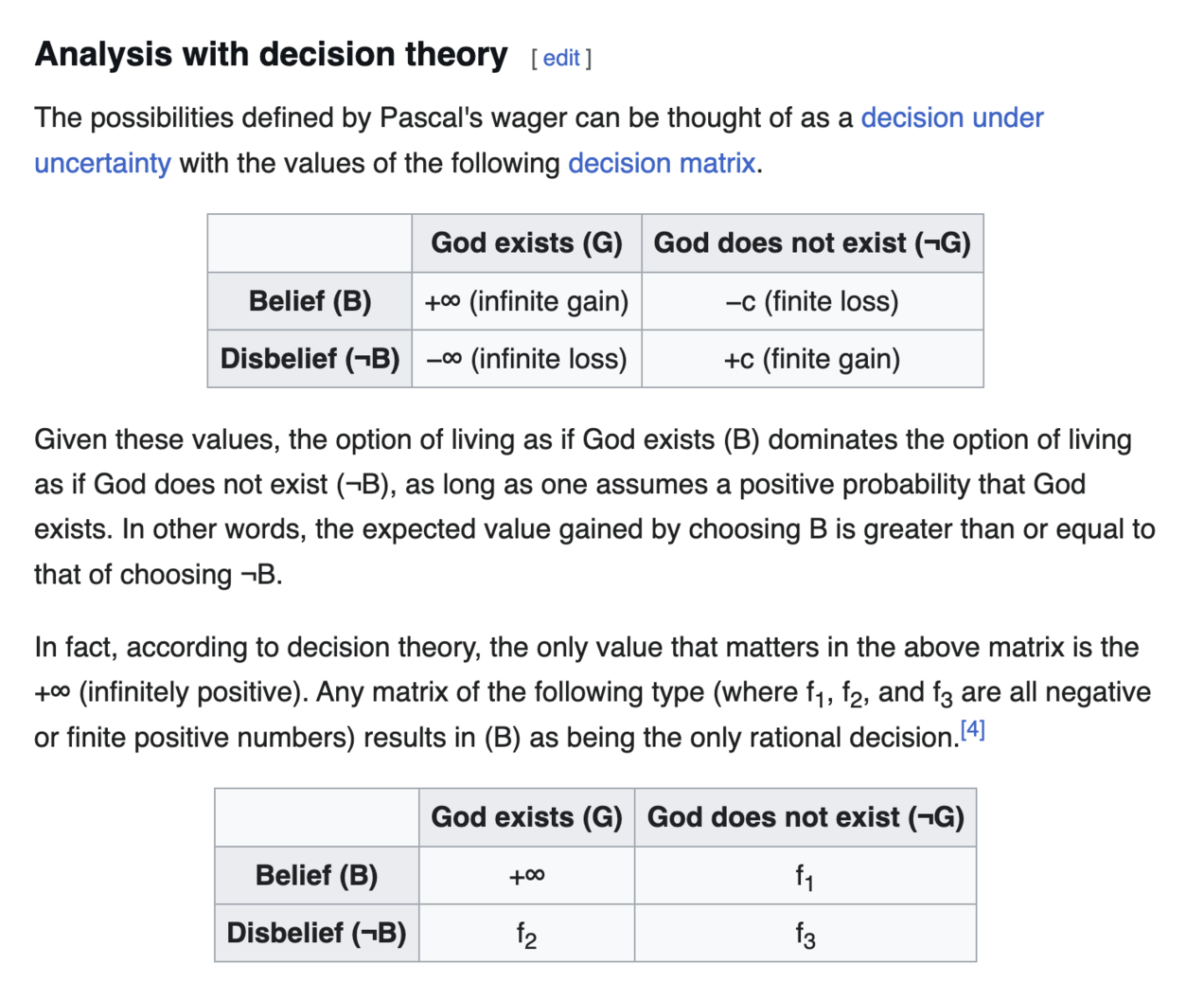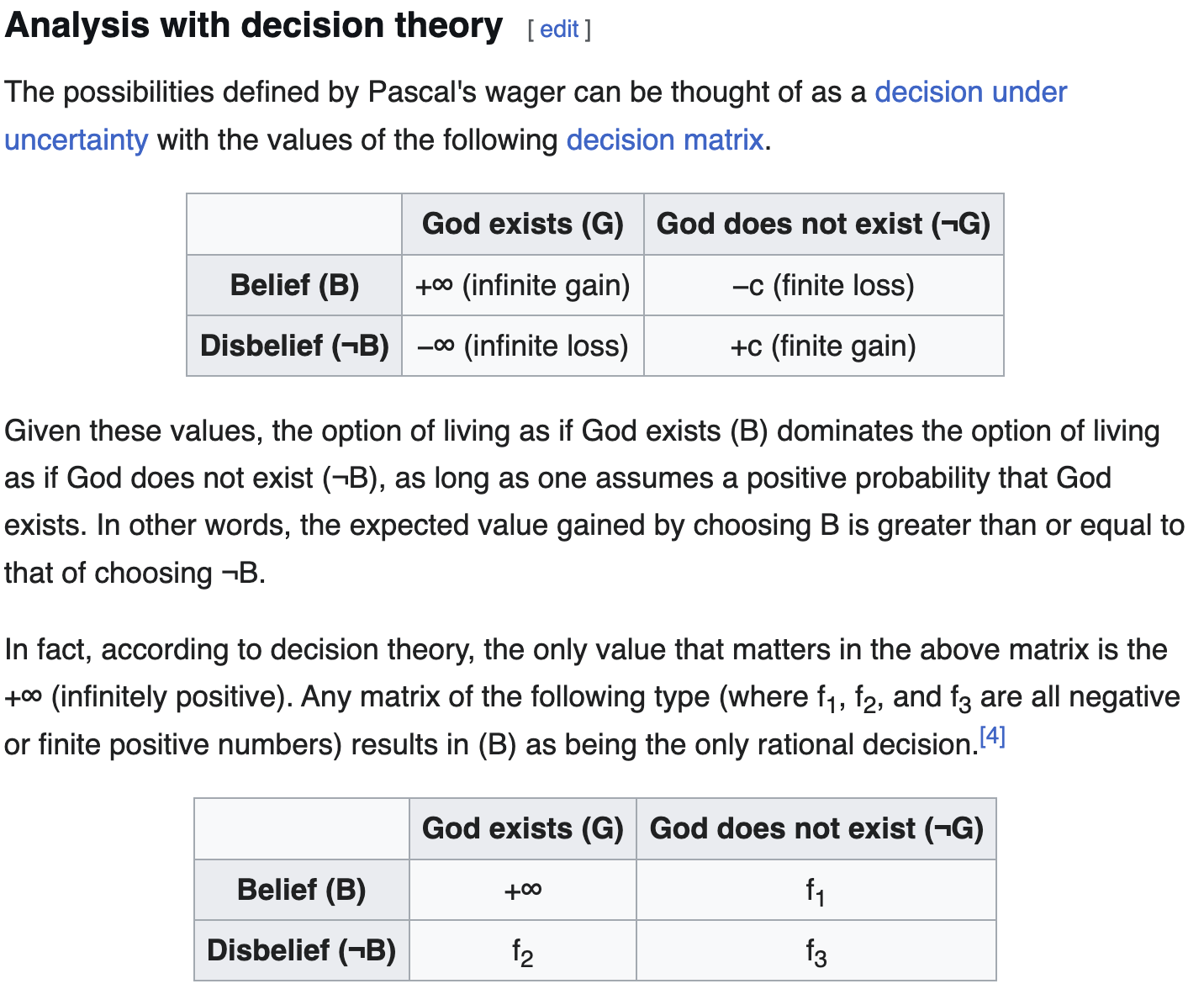A life-changing challenge guided by Pascal’s Wager
If the Gartner Group issued a Recommendation on Behavior of Fortune 5000 Corporations with Respect to the Existence of PBRs (Power Beyond our Reckoning), surely they’d back up their ecclesiastical recommendation using a 2×2 diagram where the best place to be located is up and to the right.
Silly, and yet, that’s precisely what genius mathematician/
Let us weigh the gain and the loss in wagering that God is.
If you gain, you gain all; if you lose, you lose nothing.
Wager, then, without hesitation that He is.
Or in modern lingo:
If you act like God does not exist, but it turns out he does exist, you’re eternal toast.
Whereas if you act like God does exist, you can’t fail, because either (a) he in fact exists, good on you, and if (b) he doesn’t, no biggie.
Thus the only logical strategy is the one where there’s no significant downside: To believe in God.
However, if I were drafting the Gartner PowerPoint slide, I would rip off Wikipedia’s excessively-technical crowd-sourced analysis:
Figure 1
Actually this isn’t a rational argument for the existence of God, it’s a rational argument for acting as if God exists, because it’s the bet with the highest expected value. (Although this isn’t how you should make large bets anyway).
Pascal’s Wager can be applied to other things in life.
We react to most things from a position of scant knowledge, especially when we’re running a startup where essentially every decision is a guess. An educated guess, but not terribly educated.
You have to make assumptions of course, but Pascal points out that some assumptions fare better in all eventualities, whereas other assumptions result in positive outcomes only sometimes. Surely we should choose the behavior that maximizes our expected value as Wikipedia suggests.
Sounds obvious but we don’t always do it. For example:
Folks often contact WP Engine tech support from posture of accusation. They’re blameless (“I didn’t do anything!”) so we must have screwed something up. Occasionally that’s true, but most of the time it’s either ignorance or someone else on their team messed it up, or they themselves actually did mess it up, hoping we’ll come to their rescue. (Which we will.)
Now, look. Support people are human beings. Not mechanized automatons impervious to rude language and assumption of incompetence. They’ve also chosen a field in which they help people.
Meditate on that for a second. They’ve chosen to help people…. for a living. Is that how you’d define most of your day? Is that not a noble profession? And what thanks do they get, call after call, day in and day out?
So if you open up the conversation from a posture of helplessness or curiosity, they’re inclined to help, even if it’s your own fault. And if turns out not to be your fault, imagine how sympathetic they’ll be to your cause—here’s the nicest person on Earth, blaming themselves from the get-go, and yet it’s our fault! Imagine how readily they’ll personally fight to remedy the situation.
But that’s not what you do when you’re on the phone with tech support, is it? No, you’re angry and frustrated because something is wrong, and you unfairly take it out on whomever you’re talking to, even though they’re also your only link to salvation. But then how do they feel about helping you? Of course it’s their job to help you, and there’s metrics and such which hopefully punishes them if they don’t do their job. But still… is that the way to get most out of other people? Is that the way to live your life?
You can’t fail if you assume you’re ignorant, that you’re missing information, that you’re ready to learn, that you need help to understand.
It’s just Pascal’s Wager again: Being humble cannot fail; being arrogant can.
This isn’t specific to WP Engine’s support, of course. It’s everyone, any time, especially if you’re communicating over email where emotions are hard to convey and text is misread. Tech support, vetting a new idea, arguing with your spouse, or exchanging emails or Tweets with a stranger.
But how often do you act like that?
What would happen if you always acted like that, in every situation? Would you discover you’re wrong more often and about more things than you thought? That you misread, or read something that doesn’t exist, in-between lines that aren’t the lines you thought they were?
And, in the cases where you are in fact correct, perhaps people would respond in a more positive way, where they learn also, and where they go out of their way to make things better? Could the simple act of being humble be life-altering?
Try it for a week and just see.
You have nothing to lose and everything to gain by trying.
Like Pascal.
https://longform.asmartbear.com/pascals-wager/
© 2007-2025 Jason Cohen
 @asmartbear
@asmartbear Simple eReader (Kindle)
Simple eReader (Kindle)
 Rich eReader (Apple)
Rich eReader (Apple)
 Printable PDF
Printable PDF








